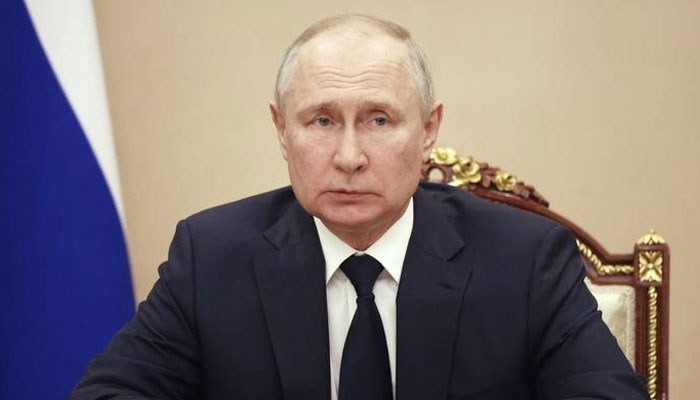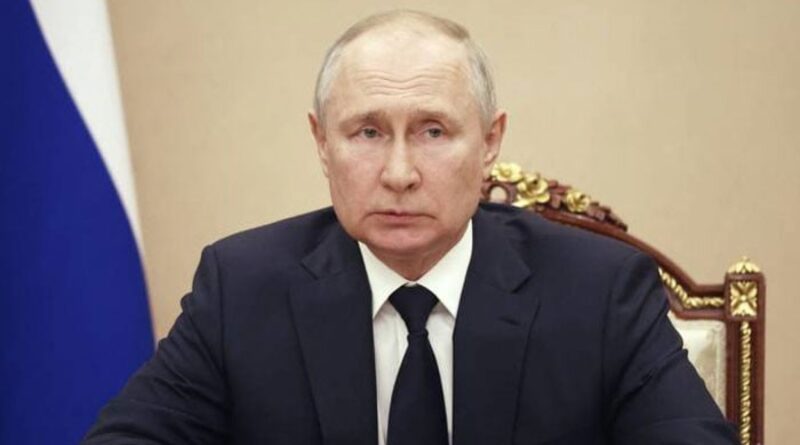Russia alarms on Black Sea exports after failed grain agreement

Following its decision to withdraw from a historic agreement that allowed the shipment of grain from Ukraine, Russia declared on Wednesday that it would consider cargo ships travelling to Ukraine via the Black Sea to be potential military targets.
Ukrainian President Volodymyr Zelensky charged Russia with purposefully targeting grain export facilities and endangering weak nations after a second night of strikes near the southern Ukrainian port of Odesa.
At the same time, Kyiv encouraged other Black Sea region nations to take action to ensure the cargo ships’ safe passage.
Following the effective shutdown of the sea channel, Ukraine’s European neighbours once again expressed concern about an influx of cheap grain and urged the EU to extend an import restriction.
“From 00:00am Moscow time on 20 July 2023 (2100 GMT Wednesday), all vessels sailing on the Black Sea to Ukrainian ports will be regarded as potential carriers of military cargo,” the Russian defence ministry said.
“Flag states of such vessels will be considered to be involved in the Ukrainian conflict on the side of the Kyiv regime,” the ministry said in the warning.
The beginning of Moscow’s Ukraine campaign last year saw Black Sea ports blocked by warships until the agreement, brokered by the UN and Turkey.
The Kremlin said it was exiting the deal on Monday, after months of complaining that a related agreement allowing the export of Russian food and fertilisers had not been honoured.
‘Robbing the world’
Moscow accused Ukraine of using the Black Sea grain corridor for “combat purposes”, following Russia’s withdrawal from the deal.
The Russian army said in a statement it had hit “military-industrial facilities, infrastructure for fuel, and ammunition depots of the Ukrainian armed forces near the city of Odesa” in the overnight assault.
But Kyiv said the strikes had destroyed 60,000 tonnes of grain waiting for export.
“Russian terrorists deliberately targeted the grain deal infrastructure, and every Russian missile is a blow not only to Ukraine but to everyone in the world who wants a normal and safe life,” Zelensky said on social media.
As strikes intensified, wheat prices on the European stock exchange soared Wednesday up 8.2 per cent from the previous day to 253.75 euros per tonne, while corn prices were up 5.4 per cent.
The deal enabled the export of more than 32 million tonnes of Ukrainian grain over the last year, bringing relief to countries facing critical food shortages such as Afghanistan, Sudan and Yemen.
With the strikes in Odesa, Russian President Vladimir Putin “is robbing the world of any hope of Ukrainian grain”, German Foreign Minister Annalena Baerbock said on Twitter.
But Putin in a government meeting late Wednesday accused the West of using the grain deal as “political blackmail” and that the agreement “has lost all meaning”.
He added he would consider rejoining the deal only “if all principles under which Russia agreed to participate in the deal are fully taken into account and fulfilled”.
Ukraine said it was prepared to continue grain exports despite the end of the deal and called on other countries to help.
“A UN mandate should be added here to create a military patrol that would include countries in contact with the region, for example, Turkey, Bulgaria or any others,” Ukraine’s presidential aide Mykhaylo Podolyak told AFP.
Meanwhile, Ukraine’s European neighbours urged the EU to extend a grain import ban until the end of the year, amid fears local farmers would be undercut by diverted Ukrainian supplies.
In June, Brussels agreed to allow Poland, Bulgaria, Hungary, Slovakia and Romania to restrict imports of grain from Ukraine through September.
“Either the European Commission agrees to develop… regulations to extend this ban, or we will do it ourselves,” said Polish Prime Minister Mateusz Morawiecki, whose country is otherwise a staunch supporter of Ukraine.
Russian officials order evacuation of civilians
Elsewhere, the Russian army said it had advanced one kilometre (less than one mile) along the frontline in Ukraine’s northeastern region of Kharkiv.
In Crimea, Russian officials ordered the evacuation of 2,000 people, following a fire at a military site on the Moscow-annexed peninsula.
“The temporary evacuation of residents of four localities adjacent to the military field in the Kirovsky district is planned,” said the Moscow-installed head of Crimea, Sergei Aksyonov.
Authorities did not specify the cause of the fire, but some Russian media reported that detonations were heard in the area and footage showed columns of black smoke in the sky.
Military targets on the peninsula, a key supply artery for Russia’s war in Ukraine, have been hit repeatedly in recent months.
Ukraine is expected to receive more military support in the conflict with the United States announcing a new $1.3 billion aid package featuring air defence systems, anti-tank missiles, drones and other equipment.
Zelensky hailed the United States’ “unwavering” support.
On the front, fighting is concentrated in eastern Ukraine, where Kyiv’s counteroffensive is so far struggling to break through Russia’s defensive lines despite extensive support from its allies.
“We’re holding firm as far as morale is concerned,” a 23-year-old Ukrainian soldier at an undisclosed location near Lyman told AFP.
“We just want a victory as soon as possible.”

